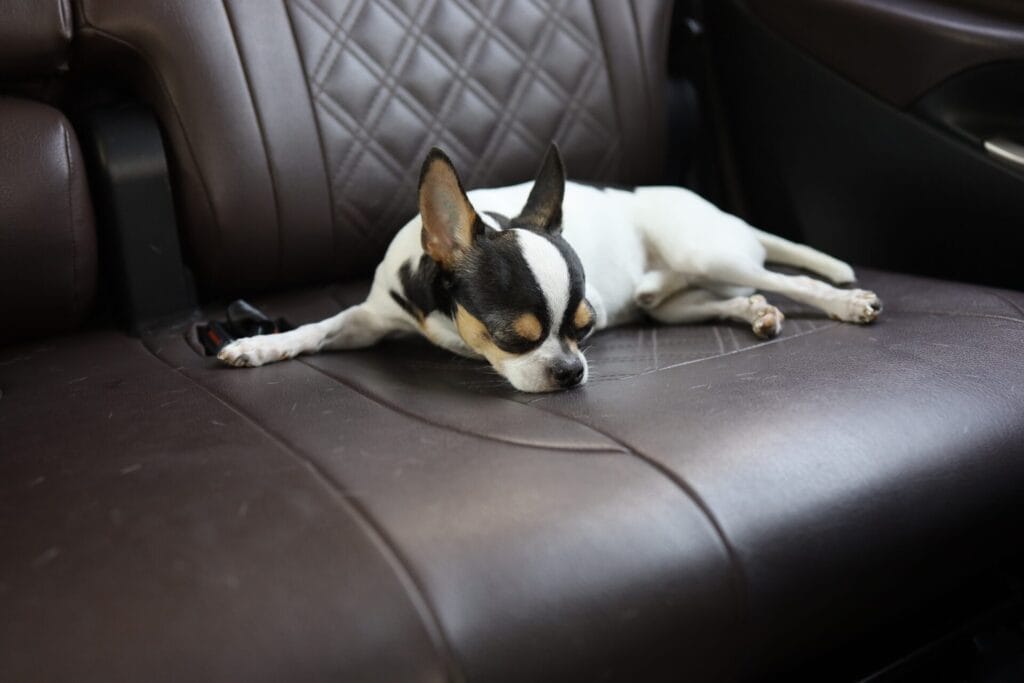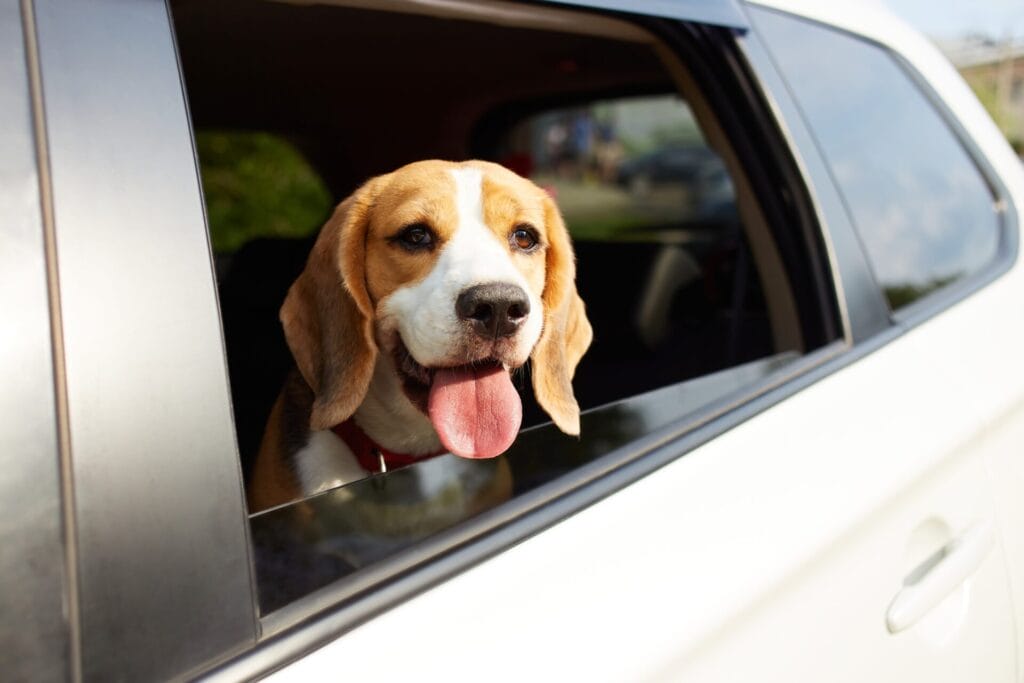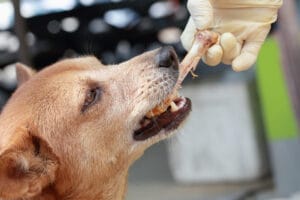Causes of Car Sickness in Dogs
Physical Causes
Just like humans, dogs can experience motion sickness due to a disturbance in the inner ear system that controls balance. This is particularly common in puppies, as their inner ear structures are not fully developed. Most dogs outgrow motion sickness as they mature.
Psychological Causes
Car-related stress can also trigger car sickness in dogs. Negative experiences in the car, such as accidents or loud noises, can cause a dog to associate the vehicle with fear. My dog, Parker, developed car anxiety from a near accident that jolted everyone in the car. Additionally, a lack of experience in the car may lead to stress-induced car sickness.
Regardless of the cause, car sickness can be frustrating for dog guardians and uncomfortable for their dogs.

Symptoms of Car Sickness in Dogs
Symptoms of Stress
- Restlessness
- Panting
- Whining
- Chewing
- Crying or barking
- Restlessness
- Trembling/shaking
- Yawning
- Tense posture
Symptoms of Nausea
- Drooling
- Vomiting/dry heaving
- Excessive licking
- A “grin” with tense lips
Solutions for Car Sickness in Dogs
Desensitization
Start by taking your dog into the car for a few minutes daily without going anywhere. Go through the whole routine and provide positive reinforcement. Make it fun by rewarding with treats. Next, take short trips at least two to three times per week, even just around the block. Once your dog is comfortable, go somewhere fun, like a park, so your dog will associate car rides with enjoyable destinations. Repeat this often to reinforce the positive experience.
Offer small, healthy treats to encourage desired behaviors, such as getting into the car and settling down. Avoid large meals before travel to prevent vomiting.
Comfort
Make car rides as comfortable as possible. A crate might make your dog feel more secure, especially initially. Solid-sided crates can be better because they prevent your dog from seeing the blurred lines of movement, which can worsen nausea. Older puppies might prefer a seat belt or car seat. Bring your dog’s favorite toy and blanket to create a comforting environment.
Opening the car windows slightly can help balance the air pressure and provide your dog with the smells of the outside world, which can be a welcome distraction. On long trips, stop frequently to let your dog relieve himself and stretch his legs. Offering water or ice chips can also help.
Distraction
A frozen peanut butter or pumpkin-filled kong or their favorite healthy chew can keep your pup occupied during travel. Calming music and your encouragement in a soft voice can also help keep your puppy distracted and calm.
Training
Training commands around the car experience makes travel safer for your dog and builds confidence. Have your dog wait for the command to enter and leave the car. Use a command like “up” to invite your dog into the car, and a command like “settle” to encourage stillness while riding. Teaching a release command, such as “okay,” can prevent your dog from jumping out unexpectedly when near traffic.
Training around the car elevates your puppy’s confidence by distracting him with commands and clarifying your expectations.
Treatments
For severe motion sickness, your veterinarian may recommend a medication like Cerenia or Meclizine. Natural remedies such as lavender, chamomile, ginger, and peppermint can also help calm your dog and settle his stomach.
Ginger has anti-spasmodic and antacid effects to relieve stomach irritation and nausea. To give ginger to prevent nausea:
- Use powdered ginger
- Give 30-40 minutes before the car ride.
- Administer ⅛ teaspoon dissolved in water or raw honey for each 15 lbs of body weight.
Chamomile can be given as a tea (2 teaspoons to 2 tablespoons depending on the dog’s size), powder, or fresh ground herb. It is a gentle herb that soothes the stomach and has sedative effects that may help your dog relax during travel.
Valerian, St. John’s Wort, and CBC oil are also effective calming remedies.
*Always consult your veterinarian before giving your dog any medications or supplements.
Conclusion
Car travel can be challenging when your dog experiences car sickness. However, with a plan and patience, you can help your dog overcome it. Don’t let car sickness limit your adventures with your beloved friend.




















